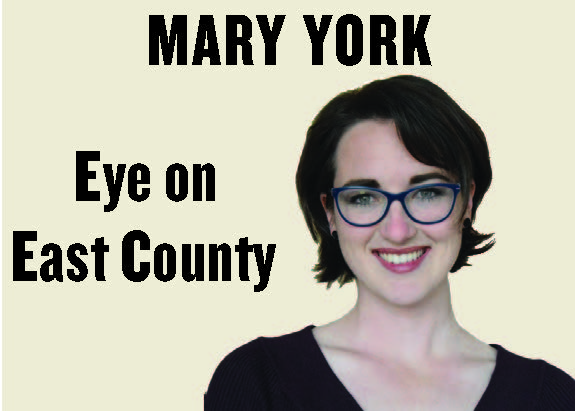I waited by the phone most of the weekend. My brother was in Indiana with my dad for the national level of the American Legion’s oratorical scholarship contest. Excuse me for being an obsessively proud older sister, but as witness to the many long nights when my brother would slip away into our cold garage to practice his speeches for hours, I can truly say that he has earned this.
I waited by the phone most of the weekend. My brother was in Indiana with my dad for the national level of the American Legion’s oratorical scholarship contest. Excuse me for being an obsessively proud older sister, but as witness to the many long nights when my brother would slip away into our cold garage to practice his speeches for hours, I can truly say that he has earned this.
At an age when his peers are hanging out on the weekends, he has been combing through historical references for insights into our founding documents. He has turned down excursions and trips with friends and more than one Netflix binging session to work on this project.
And, as an alumna of the scholarship contest, I understand how nerve-wracking each of the levels of competition can be, from the local post to state – the state level was as far as I ever got. Indiana remained an elusive dream for me.
So, it was with immense relief and overjoyed excitement that I received the news that my little brother had taken third in the nation. The scholarship money will be well-spent on him. This young man is as hard-working as he is thrifty. But I know that the cushion in his college fund is only part of the huge reward he has earned.
Knowledge. Knowledge will always be the most valuable currency we can own.
My siblings – there are six of us – have all competed in the American Legion’s oratorical contest, which requires participants to write an eight-to-ten minute speech about some facet of the Constitution of the United States of America. Every year, there are an additional three amendments about which contestants must research and prepare three-to-five minute explanations.
The amendments I had to prepare for as a high school contestant ranged from search and seizure laws and jury rights to the housing of troops and ‘cruel and unusual punishment’ protection measures.
I vaguely recall learning about the amendments in history or American government, but not to the depth that I had to understand them for this competition. My dad, enthusiastic amatuer historian that he is, dug through his extensive library of commentaries on European thought, primarily British law, and its influences on the development of American government. I found myself making friends with Edmund Burke and John Locke and Thomas Hobbes along with American favorites like Jefferson and Washington and Franklin.
American government was centuries in the making. It was the culmination of the Magna Carta and the extensive battle for established liberties on English soil. It is a heritage largely forgotten by Americans today.
In fact, constitutional education is an issue far overlooked and watered down in the educational system. The cornerstone of our nation’s freedoms should be deeply understood – and not just the first amendment of it, though there is plenty of ground to cover there.
Campuses across California, colleges that East County high schoolers will find themselves at next fall, have established ‘free speech zones’ to protect the right of students to speak. But colleges, public colleges at least, should not limit free speech to ‘zones’ – speech is free everywhere. Those same colleges are aggressively attacking individuals, from students to professors, who espouse ideas counter to their views of tolerance and individual liberties. ‘Hate speech’ has become a household term. But, except in instances outlined by state and federal laws, what is usually dubbed ‘hate speech’ is also totally constitutional. Dissent is a right to be guarded covetously.
In study search and seizure measures, I found myself in Middle England where Sir Edward Coke proudly pronounced that every man’s home is his castle. What a concept, that our homes are our fortresses of privacy and defense, and that to enter without permission is essentially an act of war, an attack. If John Locke’s ideas of property rights are to be applied to this, that means that our persons, our vehicles and all our possessions are an extension of this fortress of personal sovereignty.
What an empowering concept, and how much more powerful when we understand and can articulate it.
You point to an issue of social aggravation in today’s news – police brutality, ICE arrests and deportation – and I will point you to a specific amendment in our constitution that dictates what are the rights of the parties involved. I can do this because I spent two years of my life prepping for and competing in the American Legion’s scholarship competition.
My little brother will be able to do the same, as will hundreds of other high schoolers around the country who were granted the same opportunity to compete and learn.
I have to thank the American Legion community in San Diego and in our beautiful state for giving me a venue to make an intentional study of our government and enabling me to endow myself more fully as an equipped citizen of this great country.
I can only encourage this community to support their local posts – East County has several – and consider putting their high schoolers through the competition, if not for the scholarship money than for the wealth of knowledge they will gain.












